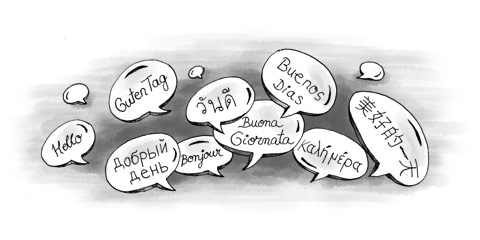Spoken since the 2nd century CE, Arabic is one of the oldest existing languages in the world. Arabic is an official language of 22 states, and it is widely spoken throughout the world. It is also an official language of organisations such as the United Nations.
Arabic belongs to the Semitic group of languages and is the language of the Qur’an (the Islamic Holy book). Even if it is often associated with Islam, most Muslims do not speak Arabic. However, it has an increasing influence on Islamic countries whose residents borrow a lot of vocabulary from Arabic.
The number of Arabic speakers is continually growing throughout the world. Unfortunately, aside from the Middle East, North Africa, and specialised universities, Arabic is taught in schools in only a few countries as a foreign language.
Arabic dialects
Depending on the country, you will encounter different Arabic dialects. The four main kinds of dialects are Maghrebi Arabic, Egyptian Arabic, Gulf Arabic and Levantine Arabic. These dialects are so different that a Maghrebi Arabic speaker might have problems understanding a Gulf Arabic speaker.
As a foreigner in Dubai, you should focus on Modern Standard Arabic (فصحى, pronounced fuṣḥā). This language is spoken by the majority of people in large cities, and it is also used at international meetings and conferences conducted in Arabic. It is also used in books, media and mosques.
What characterises Arabic as a language
The Arabic alphabet is composed of 28 consonants and three vowels. Once you master the alphabet, it shouldn’t be too hard for you to read Arabic. Keep in mind that you will read from right to left.
Arabic words from the same family have common roots. Roots are a sequence of three consonants related to one concept. To create a word, you add vowels and non-root consonants.
Difficulties in learning Arabic
Arabic may seem to be a difficult language to master when you see Arabic script. However, once you master the alphabet, the writing and pronunciation, you will see that the language's structure follows a fairly logical pattern.
What's quite difficult is the vocabulary. Indeed, you won't even find words which look like the ones in your native language to help you out. As a student of Arabic, you will need to already know a word or its family to be able to understand it (which means you will have a lot of studying to do).
Some sounds are really different from other languages, too, and you may need some time to get used to them.

